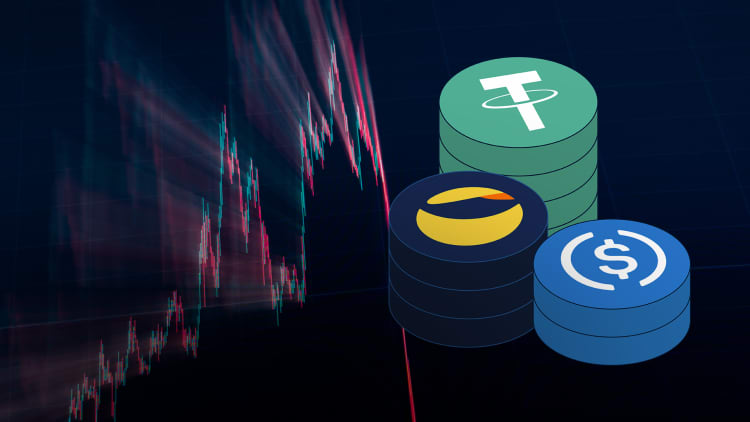[ad_1]
Visa Inc. and Mastercard Inc. credit cards are arranged for a photograph in Tiskilwa, Illinois, U.S.
Daniel Acker | Bloomberg | Getty Images
Embattled cryptocurrency exchange Binance has lost some business with payment card networks Mastercard and Visa.
The development is a sign of how traditional financial institutions are growing wary of working with the company as it faces intense regulatory scrutiny and wider concerns around financial compliance within the crypto industry.
Mastercard will soon no longer offer Binance-branded cards in Latin America and the Middle East, which let customers user their crypto to purchase goods, Binance said Thursday via X, the company formerly known as Twitter.
“The product, like most debit cards, has been utilized by Binance’s users to pay for basic daily expenses but in this case, the cards are funded with crypto assets,” Binance Customer Support said on Twitter.
“Only a tiny portion of our users (less than 1% of users in the markets mentioned) are impacted by this. Users of this product will have until September 21, 2023, when the card will no longer be available for use.”
“Binance accounts around the world are not affected. Where available, users can also shop with crypto and send crypto using Binance Pay, a contactless, borderless and secure cryptocurrency payment technology designed by Binance,” the company added.
Mastercard confirmed that it is ending the partnership, with a spokesperson telling CNBC that, from Sept. 22, four pilot Binance co-branded Mastercard card programs the company had with Binance in Argentina, Brazil, Colombia and Bahrain “will no longer be in use.”
“This provides cardholders with a wind-down period to convert any holdings in their Binance wallet,” the Mastercard spokesperson said. “There is no impact on any other crypto card program.”
Visa, meanwhile, also moved to distance itself from Binance. The company ended a similar card tie-up with Binance, as it ceased issuing new co-branded cards with the firm in Europe as of July, a spokesperson for the company told Bloomberg.
Binance and Visa were not immediately available for comment when contacted by CNBC.
It’s a sign of how crypto continues to face a broadly tepid response from the financial services industry.
Backlash
Mastercard had warmed to crypto in recent years. In Oct. 2021, the firm began allowing any bank or merchant the ability to offer crypto services. Last year, the company launched a product allowing banks to assess the risk of crime posed by crypto merchants, and started letting banks offer crypto trading.
For its part, Mastercard said its decision to end the tie-up with Binance has “no impact on our wider commitment to enabling and securing digital assets, which we continue to support.”
Binance faces intense backlash from regulators including the U.S. Securities and Exchange Commission and the Commodity Futures Trading Commission.
The SEC brought 13 charges against Binance and its CEO Changpeng Zhao accusing the company of commingling billions of dollars in customer money with Binance’s own funds, similar to allegations made against the now bankrupt crypto exchange FTX.
Binance denies the allegations.
The firm recently filed a protective order against the SEC, saying the regulator’s requests for information were “over broad” and “unduly burdensome.”
Last week, Checkout.com reportedly dropped Binance as a customer, citing “reports of regulators actions and orders in relevant jurisdictions,” “inquiries from partners,” and concerns over the firm’s anti-money laundering, sanctions and compliance controls.
WATCH: How a $60 billion crypto collapse got regulators worried

[ad_2]

